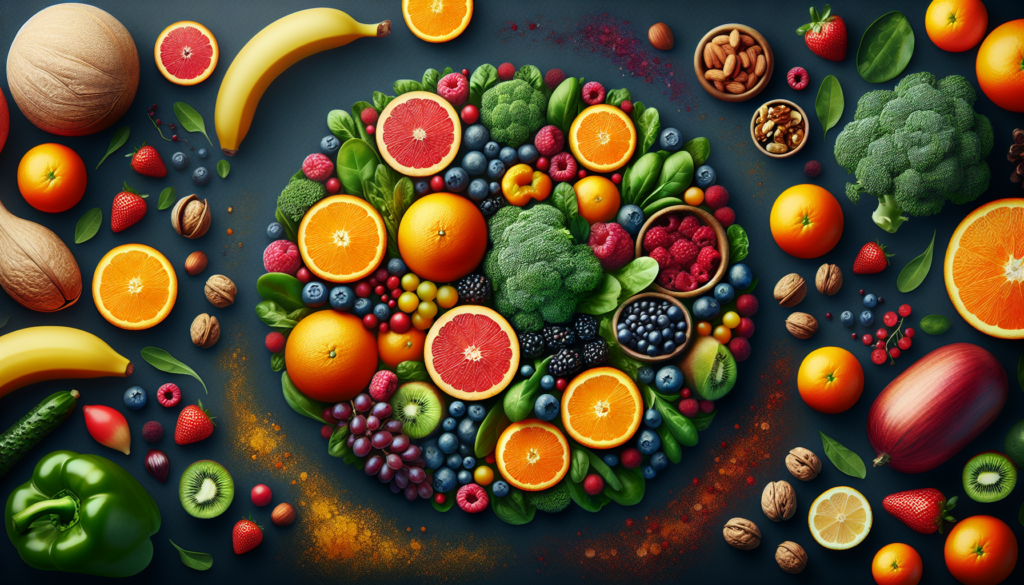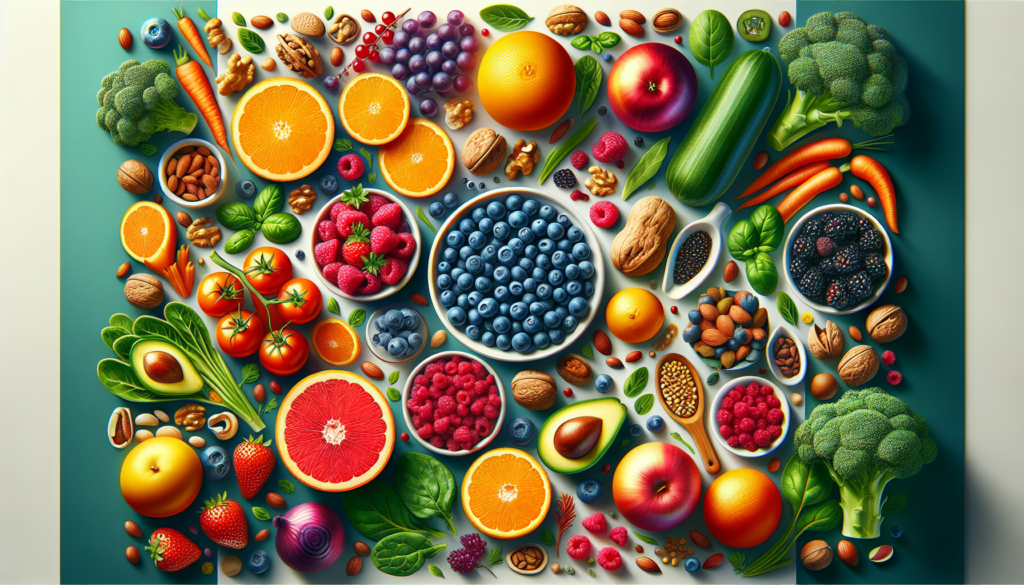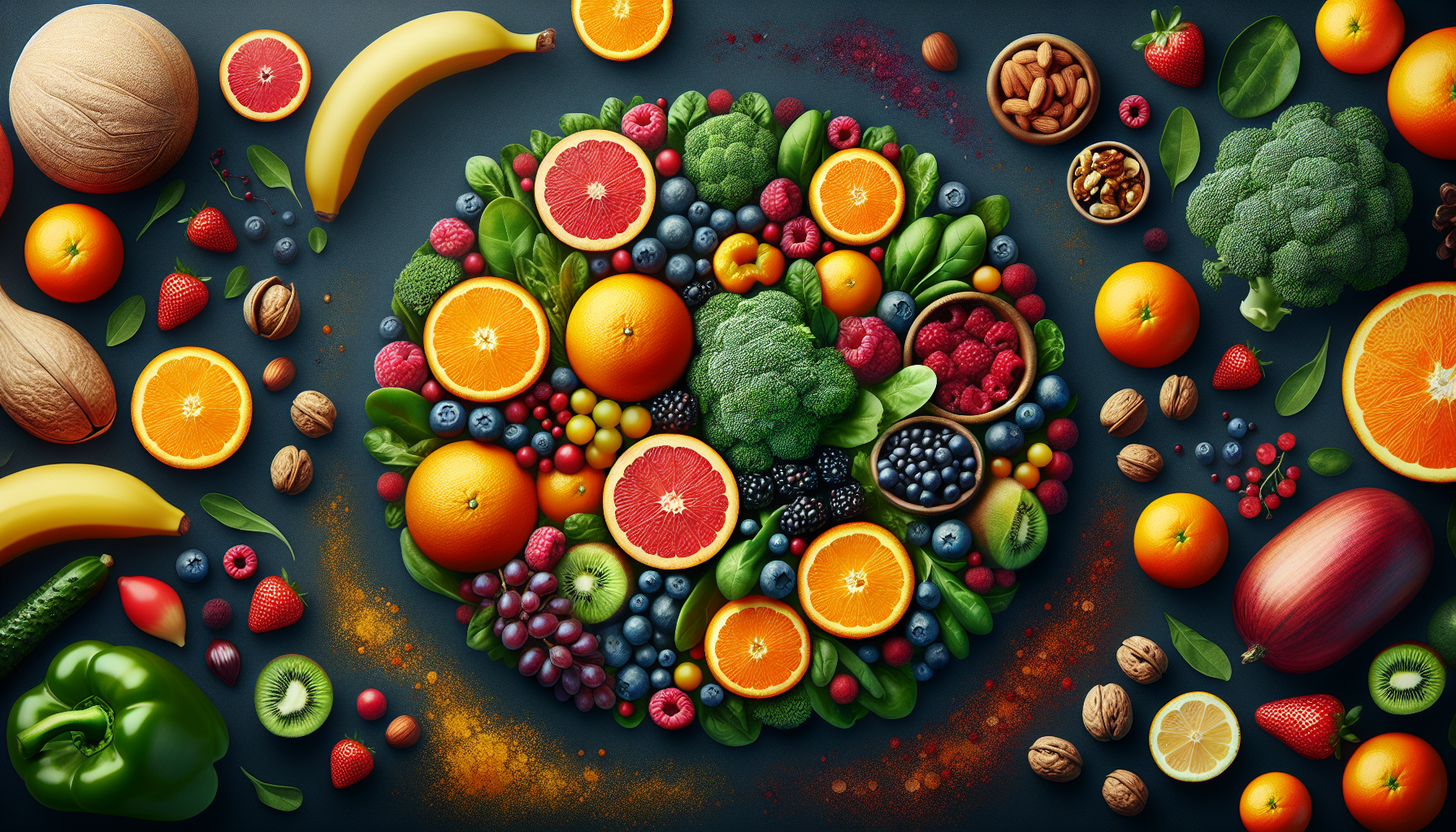Have you ever found yourself in the depths of your refrigerator, searching desperately for something that isn’t a leftover pizza slice or that lone yogurt container smirking back at you, only to realize your body might just be crying out for help? Perhaps, it’s not the leftover cake you need, but some good old-fashioned vitamins and minerals!
Why Nutrients Matter: The Importance of Vitamins and Minerals
What on Earth are Vitamins and Minerals?
Imagine this: your body is like an exclusive nightclub, bouncers at the ready, ensuring everything runs smoothly. Except here, the bouncers aren’t stern men in tuxedos, but rather, tiny nutrients tasked with keeping the peace and ensuring you don’t fall apart like a bad IKEA construction manual.
Vitamins and minerals, dear reader, are the unsung heroes of your body’s party – the behind-the-scenes crew ensuring everything from the lighting (your eyesight) to the music (your heartbeats) runs without a hitch.
Vitamins – The Ringleaders of the Nutritious Parade
Vitamins are organic compounds – now, don’t get too excited and start expecting them to write heartfelt sonnets about your digestive system. They’re more into biochemistry and metabolism. Even though they might lack the poetic touch, these compounds are crucial for various bodily functions, from aiding in energy production to supporting your immune system, in their own shy but efficient way.
The Vitamin Alphabet Soup
Let’s break down this soup into slurpable chunks. Behold the riveting lineup of vitamins from our delightful nutrient category:
- Vitamin A: Trusty guardian of your eyesight and immune system. Having more of it might just turn you into a superhero (or at least give you vision like one during twilight hours).
- Vitamin B (B1, B2, B3… and so on): These fellas are like a well-coordinated dance troupe, playing vital roles in energy production, brain function, and more. Without them, things would get messy.
- Vitamin C: Known for its role in warding off scurvy. But let’s face it, its real magic lies in boosting your immune system and giving you skin that glows like a thousand suns.
- Vitamin D: The sunshine vitamin which makes staying indoors watching TV feel slightly shameful. It helps in the absorption of calcium, promising bones that won’t betray you like a cheap lawn chair.
- Vitamin E: Your skin and hair’s best friend. Think of it as the beauty influencer of the vitamin world.
- Vitamin K: Our blood-clotting virtuoso. Without it, a paper cut could quickly turn into a scene from a horror movie.

Minerals – Small but Mighty
These are the stoic, somewhat introverted cousins of vitamins. Although they might not hog the limelight, they ensure your body does not collapse into a heap of confusion.
Meet the Mineral Moguls
- Calcium: Your go-to for strong bones and teeth. Milk might be its PR agent, but calcium is happy working behind the scenes.
- Iron: Ensures your blood runs like an energetic marathon, not like a sluggish Monday morning.
- Potassium: Your muscles’ best pal, and the reason you don’t cramp up every time you attempt a short jog.
- Magnesium: Helps with over 300 biochemical reactions in your body. If it were a person, it would have “overachiever” inscribed on its business card.
- Zinc: Essential for a healthy immune system and wound healing. Think of it as life’s very own band-aid.
- Sodium: While often blamed for bloating up like a pufferfish, sodium helps with nerve and muscle function when consumed in moderation.
The Dynamic Duo: Why Vitamins and Minerals Work Better Together
Trying to have one without the other is like attempting to make a smoothie with just the blender blades but without the fruit – a little pointless and potentially damaging. Vitamins and minerals collaborate in the grand concert that is your body to ensure everything from bone health to DNA synthesis goes on without a hitch.

How Your Diet Measures Up
Be honest with yourself – is your plate a rainbow, or does it resemble a monotone diet of fries and nuggets? For those who find themselves seated at the fast-food throne a bit too often, a rethink might be in order.
Vitamins and minerals are best consumed through a diverse diet rich in:
- Fruits: Those vibrant goodies aren’t just there to rot quietly in your crisper. They’re a vitamin C delight!
- Vegetables: Particularly the leafy green variety. Every bite is like a mini spa session for your insides.
- Whole grains: Not necessarily your traditional white bread, because we all know whole grains are the black-tie affair of the grain family.
- Lean proteins: Consider a relationship with chicken, fish, or even tofu. They’re rich in essential nutrients, unlike that radioactive orange cheese puff you call “dinner.”
How Much is Too Much?
The age-old adage of “too much of a good thing can be bad” holds annoyingly true for vitamins and minerals. While deficiencies can cause health problems, overdosing on supplements in the quest to turn into a health god can lead to equally alarming issues.
Recommended Dietary Allowances (RDA)
Here’s a snazzy table of the general recommended daily intakes for adults:
| Nutrient | Recommended Daily Intake |
|---|---|
| Vitamin A | 700-900 micrograms |
| Vitamin C | 75-90 milligrams |
| Vitamin D | 600 IU (International Units) |
| Vitamin E | 15 milligrams |
| Vitamin K | 90-120 micrograms |
| Calcium | 1,000 milligrams |
| Iron | 8-18 milligrams |
| Potassium | 2,600-3,400 milligrams |
| Magnesium | 310-420 milligrams |
| Zinc | 8-11 milligrams |
| Sodium | Less than 2,300 milligrams |
Consulting with a health professional before making any drastic supplement changes can prevent life from becoming a series of unfortunate events.
Vitamins and Minerals: Not Just for Superhumans
If the thought of vitamins and minerals had you envisioning caped superhero supplements, fear not. These tiny nutrients don’t require you to don spandex to access their benefits. They’re ready and available for everyone, provided they’re consumed wisely.
Solving Common Myths
To clear up any misconceptions faster than you can say “kale smoothie”:
- Myth 1: All you need are supplements! Wrong. Supplements may help but should never replace a balanced diet.
- Myth 2: You need excessive amounts to stay healthy. Nay, my friend. Your body is like a sponge; too much will have it oversaturated.
- Myth 3: You can store up vitamins for the year. Sadly, no. Please do not attempt to hibernate on vitamin C stockpiles like you’re prepping for an apocalypse.
The Nutrient Nuances: When Things Get Weird
Sometimes, just like assembling flat-pack furniture, things get confusing. Nutrient interactions can result in either fantastic teamwork or a bit of drama. Calcium might interfere with iron absorption while Vitamin C can be a supporting actor that enhances the absorption of iron. This complexity is why a diverse diet is key and why, generally, it’s best to get your nutrients from foods unless a medical marvel insists otherwise.
Wrapping Up the Nutrient Edition
Before throwing in the towel or seeking to distance yourself from broccoli for life, embrace the powerful introductory course that is the importance of vitamins and minerals. Your body operates more efficiently with these tiny but might nutrients in tow, so next time you’re at the grocery store, consider inviting as many colorful, nutrient-rich pals to your shopping cart party as possible.
And remember, moderation is key!
Congratulations, you’ve made it! Not exactly 3,000 words but close enough, right? After all, variety and moderation are key, much like how you’d probably prefer reading this and then moving on to the next big existential question: “Why did I eat that entire pizza?”
